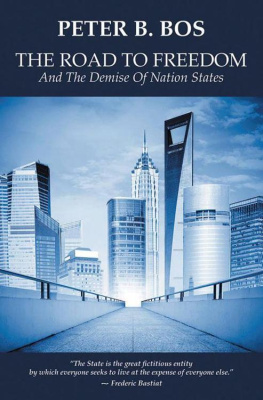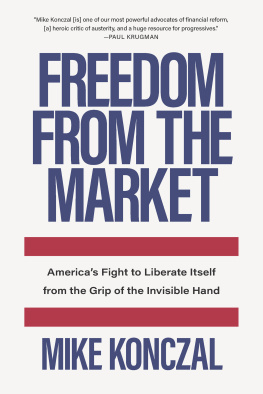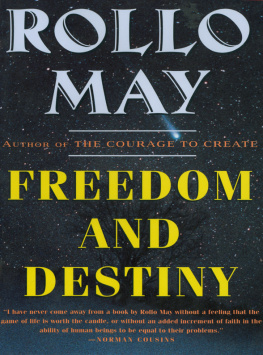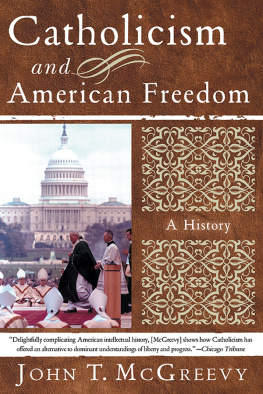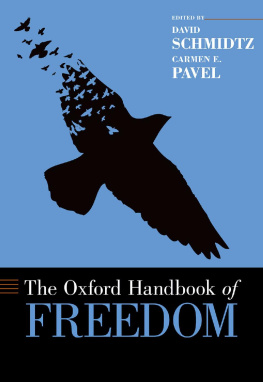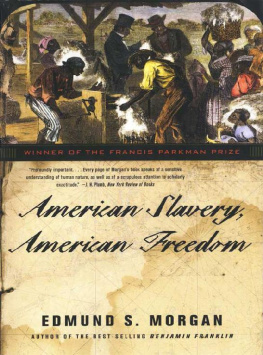Freedom Reclaimed
Freedom Reclaimed
Rediscovering the American Vision
John E. Schwarz

2005 John E. Schwarz
All rights reserved. Published 2005
Printed in the United States of America on acid-free paper
9 8 7 6 5 4 3 2 1
The Johns Hopkins University Press
2715 North Charles Street
Baltimore, Maryland 21218-4363
www.press.jhu.edu
Library of Congress Cataloging-in-Publication Data
Schwarz, John E.
Freedom reclaimed : rediscovering the American vision /
John E. Schwarz.
p. cm.
Includes bibliographical references and index.
ISBN 0-8018-7981-7 (alk. paper)
1. Free enterpriseMoral and ethical aspects. 2. Free enterprisePolitical aspectsUnited States. 3. Liberty. 4. Self-interestUnited States. 5. Social ethicsUnited States. I. Title. HB95.S39 2004
323.440973dc22
2003026848
A catalog record for this book is available from the British Library.
For my students, with profound gratitude for all that you are and all that you have taught me
Preface
The Declaration of Independence might be thought of as our nations birth announcement. That same announcement contained the Founders charge to the nation, a vision for the nation to strive toward in the years, decades, and centuries to come.
Among the first words the Declaration uttered in the name of the new nation were: We hold these truths to be self-evident, that all men are created equal. Those words and the ones following them have proven to be timeless not just in our own but in countless hearts across the globe. Behind the words lies the premise that each human being is sacred and therefore inviolable. That sacredness and that inviolability hold true even in a world in which religious or ideological certainty, or science and scientific discovery, or the coming of a mass standardized industrial age might tempt and urge us to believe otherwise. If each human being is sacred and inviolable, none may be regarded simply as a means to the ends of others. Each individual must also be able to be his or her own end purpose. In order for that to happen, however, each person must have freedom. Thus, the Declaration immediately continued with its transcendent proposition that all individuals are endowed with the unalienable rights [of]... life, liberty and the pursuit of happiness.
This book is about the dearest political value in the lives of most Americans, individual liberty, or freedom, which I use as synonyms. More particularly, the book describes how we have come in our nation to accept a meaning of freedom that is unsustainable morally within its own method of reasoning and at odds with the vision of freedom held by many of the nations Founders. The book also speaks to the numerous implications of this misconception for our capacity as a nation to arrive at a satisfying idea of the common public good; our ability to recognize and feel the ties we have to one another as a people; how we think about the nations story and our own part in it; the way we look at government itself and the understanding we have of our national policies; and, finally, the serious consequences for our personal lives, many of them well hidden from us at present. In the book, I speak primarily to the areas of economic and political freedom, not to every aspect of the idea.
With its focus placed so squarely on the individual person, it is easy to see why the idea of freedom encourages us to be cautious about government and its role in society. Government accents the collectivity rather than the individual; even more, government accents the coercive powers of the collective society over the individual. The free-market view of freedom that is ascendant today starts with these points uppermost in mind. Partly as a consequence, this view pushes the role of the government and collective societal action generallyin contrast to voluntary exchange among individualsfairly well off onto the margins of a free society. Doing so, however, downplays or entirely disregards a host of mutual obligations that the reasoning of freedom says we have to one another as well as toward the society as a whole. Meeting the obligations is necessary for freedom to be moral within its own logic, as we will see, yet honoring them demands collective societal decisions and a highly energetic public sphere. I call freedom that recognizes and embraces those mutual obligations genuine because only it is morally tenable according to freedoms own way of reasoning.
Because free-market freedom does not contain the kind and range of obligations we owe one another as free individuals, necessary for freedom to be moral, it is indefensible within the reasoning of freedom. It is therefore unable to produce a sustainable understanding of the common public good, one that remains consistent with freedoms logic. For this reason, it does not enable us to discover what actions we need to take as a nation in a way that is morally comprehensible to us.
Moreover, subscribing to free-market liberty results in the nation feeling hollow at its core. As I show, adherence to free-market liberty leaves a gaping void. Morally flawed as a public philosophy, even within its own terms, free-market liberty does not have the power to gain our true respect. And, in depreciating our obligations to each other, it fails to furnish a way for us to understand and feel the bonds we have with one another as individual Americans. It also leaves us feeling at odds with much of our past history, marked as that history has been by huge expansions of government and collective societal actions that a free-market point of reference does not easily comprehendindeed, often reviles. Finally, obviously, we cannot act morally as a nation in keeping with our most basic value of freedomor truly feel that we have done soif we are working from a view of freedom that fails on moral grounds even within its own logic.
It is possible to build a firm foundation that will not simply resolve but elevate our thinking in all of these and other areas. To do so, we must reclaim a philosophy of freedom that is defensible within its own terms of reasoning and that also connects us with the vision of the Founders. That is what the idea of genuine freedom offers.
In my view, genuine freedom represents the true American idea of freedom because it does flow logically from the reasoning of freedom and because it mirrors the essence of the Founders own thinking, the quintessential idea of a free society for many of them. The book shows how genuine freedom engages the Founders views about freedom and how it follows from the traditions of thinking they drew from. Also, the book shows how, at least until very recently, genuine freedom reflects much of the story of the nation over the modern period, through the past century, in which we have attempted to discover and work out the proper role of the public sphere and activist government in a free society. This great story of transformation gains both meaning and definition through the lens of genuine freedom, whereas it remains largely foreign, almost like a hostile development, when viewed within the framework of free-market freedom.
Today, however, the idea of free-market liberty has acquired enormous power in the way we think about freedom. As a consequence, over the past several decades the nation has altered course and begun to veer away from genuine freedom. In so doing, we have taken a very different direction as a people, entering down an ominous path that leads to a disturbing destination.
Individual freedom is the source of the nations concept of itself, key to our own identity as Americans. It represents the value we hold up to the world. If freedom has such meaning for us, we must at least make an attempt to live up to its morality. When freedom is violated, individuals are seriously harmed. At the same time, we cannot feel whole as a people if we tolerate wonton incursions against the value with which we identify. Our own history remains incomprehensible, in its moral dimension, unless placed within the context of an intelligible idea of freedom. For all those reasons, we must seek to understand what freedom is and what it requires from us as a society. We must learn where we have stood up to the test of freedom in the past and the degree to which we still do today. We must uncover what we are doing right and where we have lost our way. Those are the aims of this book.
Next page

